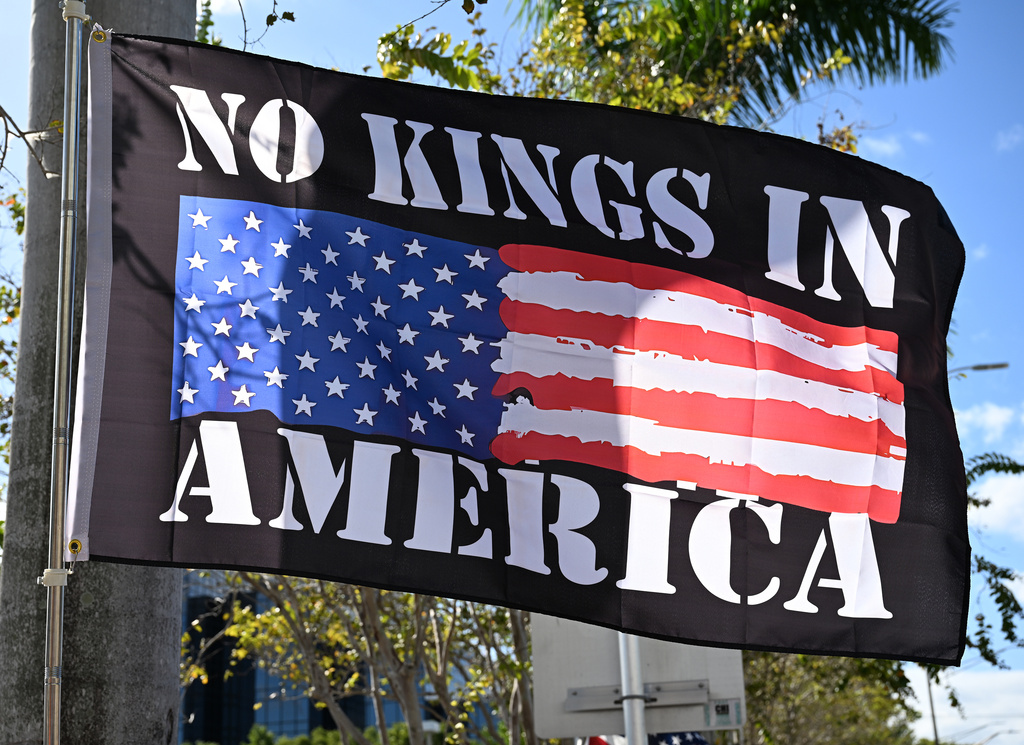Saturday saw the latest No Kings protests draw a reported 7 million peaceful demonstrators around the nation. That’s very good for organizers, as attendance is growing. But this might also be a problem.
Not because the marchers aren’t sincere—they are. Not because moral clarity doesn’t matter—it does. But because every protest that doesn’t lead to organization might be worse than no protest at all. It gives the feeling of agency without the fact of it. It lets us post, share, and check the box marked “I did something,” while the machinery of power keeps humming, unbothered.
This is the trap of protest in the age of the algorithm. It’s not that demonstrations are performative—all politics involves performance—but the performance has become the point. The march happens, the signs get photographed, the videos go viral, and everyone goes home feeling like they participated in democracy. Meanwhile, nothing changes except your feed, which has already moved on.
Trump figured this out long before this dynamic had a name. It isn’t an ideology—it’s a social media hack. It uses the same viral mechanics that fuel resistance: outrage, attention, emotional velocity. You don’t need to silence dissent when you can let it dissipate on its own. Every protest becomes a pressure valve, releasing energy that might otherwise build into something lasting.
Political scientist Zeynep Tufekci calls this “tactical freeze”—the paralysis that follows a viral high. The Women’s March drew four million people and built no durable structure. Occupy Wall Street absolutely electrified a generation and entirely evaporated. The pattern repeats because we’ve mistaken visibility for power, attention for infrastructure.
The movements that actually changed the country—civil rights, labor, suffrage—understood something we’ve forgotten. They built institutions that endured between spectacles: voter drives when no cameras were rolling, legal strategies that took years, local chapters meeting in church basements doing the slow, unglamorous work of accumulating power one conversation at a time. The March on Washington was an exclamation point on a sentence that took a decade to write. The march was the culmination, not the plan.
Disclosure: I was curious about the No Kings protest and considered covering it, but I didn’t attend. I know my misanthropic streak in crowds—and I’d likely have come away more pro-King than I’d like. Also, my beloved Arsenal were away at Fulham at the same time.
Trump’s allies aren’t marching—they’ve long been organizing. They’re on school boards, election commissions, and state legislatures. They’re passing laws, installing loyalists, dismantling oversight. They’re disciplined, hierarchical, relentless. The progressive movement is networked, expressive, and episodic. MAGA has been hard at work building a movement while progressives seem content in posting a cleaver sign on Instagram.
The infrastructure for genuine resistance exists—it’s just scattered. Groups like Protect Democracy are training election defenders. The States Project is funding down-ballot races that decide who counts votes. Local organizers are still doing the fieldwork after 2020, mapping precincts, registering voters, recruiting volunteers. What’s missing is coordination and the willingness to do what doesn’t photograph well.
That means message discipline—turning outrage into concrete demands: repeal Schedule F, defend state election autonomy, restore independent inspectors general. It means emotional infrastructure: phone banks, legal trainings, Tuesday night meetings with eighteen people, because eighteen people is enough to flip a precinct.
And maybe it means escalation. Some, like Scott Galloway, have started saying the quiet part out loud: the next step isn’t another march, it’s a national strike. General strikes impose real costs—economic and political consequences that can’t be scrolled past. They demand the very qualities the algorithm erodes: coordination, endurance, the ability to act when the cameras are gone.
The marchers are virtuous; they showed moral clarity when cynicism was easier. But virtue without strategy is performance—and performance without follow-through is paralysis. The crowd made noise. Now it has to make demands—and back them with something more than Saturday’s turnout.
The algorithm rewards the spectacular. Power respects the organized. Until we learn the difference, every protest is just another form of pacification.
The post The No Kings Protests Were Great for Social Media — Not for Meaningful Change first appeared on Mediaite.
The No Kings Protests Were Great for Social Media — Not for Meaningful Change THE NEWS FROM BULGARIA – NEWS AGENCY 2009-2025 2025-10-19 15:11:40 Latest news World news Country news Most important news latest news most important latest of the day Justice Petar Nizamov Feathers Petar Nizamov- Feathers Justice bg iustitia.bg iustitia iusticia usticia investigation Burgas Bulgaria news news of the last hour news of the day news of today Bulgaria news The news from Bulgaria blitz news top news most important most commented latest news Boyko Borisov news weather coronavirus news news weather facebook youtube facebook instagram news today news of the last minutes news today today news news bg news leading news hot news bg news site for news all news news bg news of the last hour latest latest news bg news of today news today news today news of the last hour latest news today news bg news news 24 hours news vesti bg novini news world bird bg bivol bg bivol trud bg novini latest news today novinite bg news hello bulgaria political party coat of arms delyan peevski scandalous Bulgarian National Television Free Europe Television scandal exclusive live tv live right now tv tv online tv program bg live now tv news online tv online live court Burgas court Burgas district court Burgas court Burgas district court Burgas district court Burgas appellate court Burgas prosecutor Burgas prosecutor’s office Burgas district prosecutor’s office Burgas district prosecutor’s office Burgas district prosecutor’s office Burgas district prosecutor’s office Burgas district prosecutor’s office Burgas district prosecutor’s office Prosecutor General Ivan Geshev Prosecutor Geshev Tsatsarov Ministry of Internal Affairs Burgas ODMR Burgas ODPR Burgas police Burgas district police Burgas prosecutor Tsatsarov SGS cases Varna court chairman of the SGS court decisions on civil cases decisions on cases Plovdiv court decision of the court decisions cases Varna court criminal cases district district court decisions work in the court SGS chairman of the SGS judges Sofia court post judges Plovdiv court Plovdiv judges Plovdiv Supreme Court Inspectorate Supreme Court Supreme Judicial Council lawyer lawyer criminal cases lawyer civil cases lawyer marriage cases lawyer administrative criminal law criminal process civil law civil process administrative law constitutional law
















